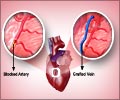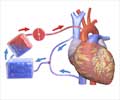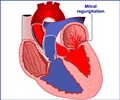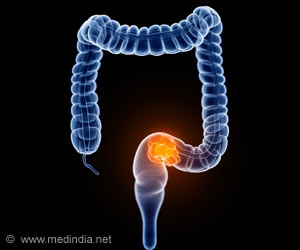The stress of open-heart surgery significantly reduces patients' vitamin D levels, but aggressive supplementation with vitamin D3, just before and after surgery, can completely eliminate the observed drop in vitamin D.

- Vitamin D supplementation before and after open-heart surgery may reduce the negative effects of the surgery.
- Vitamin D level in the body drops after open-heart surgery.
- This condition is called hypovitaminosis-D – a deficiency in vitamin D.
The Intermountain Medical Center Heart Institute study showed that giving heart patients vitamin D3 supplements before and after surgery reduced those deficiencies. Patients who were given the supplement had normal levels of vitamin D shortly after the surgery.
This connection is important since a deficiency of vitamin D is associated with an increased risk of heart attacks, strokes, congestive heart failure, and other cardiovascular conditions, including high blood pressure and diabetes, according to J. Brent Muhlestein, MD, lead author of the study, and cardiovascular researcher at the Intermountain Medical Center Heart Institute.
"We're gathering more evidence that vitamin D deficiency is strongly associated with heart disease and death," said Dr. Muhlestein. "Our study was a mechanistic approach to try and figure out what exactly is happening with vitamin D, and perhaps give us some information as we press forward with a randomized trial to find out the real answer to the question of the impact of vitamin D on heart disease and related problems."
In the ASSESS-D study, Dr. Muhlestein and his team studied 150 randomized elective open-heart surgery patients. Half of the patients received three daily 50,000-unit doses of vitamin D3 starting before their procedures. The other half were given a placebo. Patients were monitored for vitamin D levels and major adverse cardiovascular events throughout their hospitalization, and then again six months after their surgery.
Among the patients who received a placebo, vitamin D levels dropped significantly after open-heart surgery. Among those who received vitamin D supplementation, their vitamin D levels actually rose into the normal range.
Drop in vitamin D level and heart attack
The researchers from the Intermountain Medical Center Heart Institute's next step is to evaluate the effect of vitamin D supplementation on future cardiovascular risk among patients who present with a heart attack.
"We need hard evidence, and we hope the Target-D trial will give us real randomized controlled outcomes data to figure out if it's good to take vitamin D supplements if you're a heart patient who has low vitamin D levels," said Dr. Muhlestein.
Importance of Vitamin D
Vitamin D, commonly known as the sunshine vitamin, is a hormone produced by the skin. It helps regulate more than 200 genes throughout the body. Vitamin D keeps abnormal cells from multiplying in breast and colon tissues, helps regulate blood pressure in the kidney, and helps regulate blood sugar levels in the pancreas.
The human body produces vitamin D on its own, particularly when you're out in the sun. Because people today are spending less time outdoors, and using more sunscreen when they are outdoors, the entire American population has general deficiency of the vitamin. Other factors can lead to lower vitamin D levels, including a person's weight, skin, pigmentation, sex, age, and where they live.
References:
- J. Brent Muhlestein, John R. Doty et al. Acute Effects of Cardiac Surgery on 25 (Oh) Vitamin D (Vitd) Levels and Response To Vitd Supplementation: Primary Results of The Assess-D Study, Journal of the American College of Cardiology DOI: 10.1016/S0735-1097(18)31935-1
Source-Eurekalert















